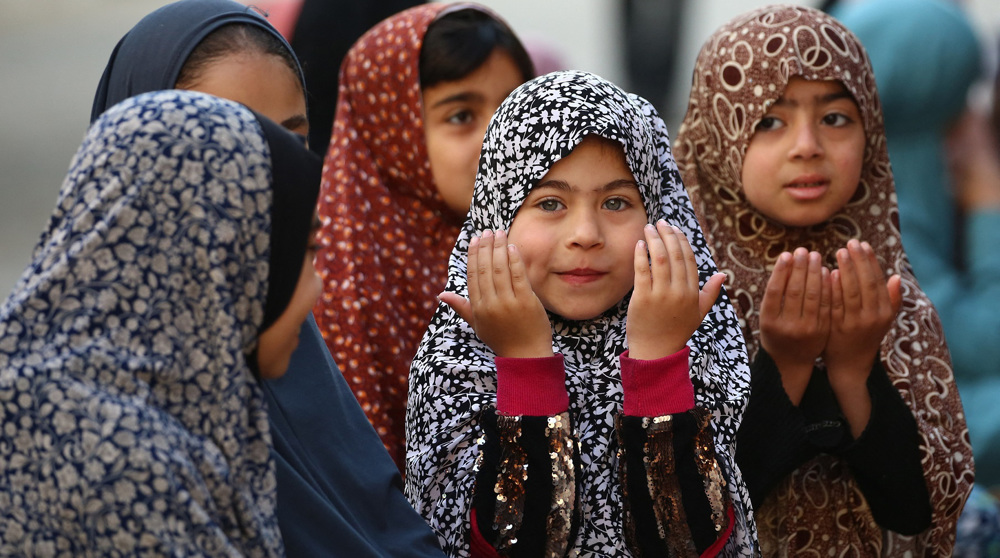UN warns COVID-19 could cause half a million AIDS deaths
COVID-19 could cause an additional half a million AIDS deaths if treatment is disrupted long term, the United Nations said Monday in a warning that the pandemic was jeopardizing years of progress against HIV.
At the start of a week of virtual International AIDS Conferences, the UN said the world was already way off course in its plan to end the public health threat even before COVID-19.
Although AIDS-related deaths have fallen by 60 percent since the peak of the HIV epidemic in 2004, in 2019 around 690,000 still died from the illness.
Around 1.7 million people were infected last year, and there are now close to 40 million people living with HIV worldwide.
The UN's annual report said that the 2020 target of reducing AIDS-related deaths to fewer than 500,000, and new HIV infections to under 500,000 will now be missed.
Millions of people had died in recent decades despite the existence of effective treatments, it said, calling on the world to learn lessons from the AIDS epidemic in its COVID-19 response.
"Like the HIV epidemic before it, the COVID-19 pandemic is exposing our world's fragilities -- including persistent economic and social inequalities and woefully inadequate investments in public health," said UN Secretary General Antonio Guterres.
Key populations at high-risk of HIV/AIDS are being put in further danger as lockdowns and distribution of medicines leaves them "even more vulnerable than usual", the report said.
Research released Monday showed the pandemic was already impacting access to preventative medicine (PrEP) among at communities at risk.
At one Boston medical center, a survey of more than 3,500 patients on the PrEP program showed that lapses in picking up repeat medication had risen 278 percent in the first four months of 2020.
Year on year, the overall number of patients receiving PrEP had fallen 18 percent, the research showed.
World Health Organization Director General Tedros Adhanom Ghebreyesus said the findings were "deeply concerning".
"We cannot let the COVID-19 pandemic undo the hard-won gains in the global response to this disease," he said.
LGBTQ danger
One model run in conjunction with the WHO showed that if COVID-19 measures disrupted HIV treatment programs for six months it could leave an additional 500,000 people dead.
The WHO said it had conducted an additional international survey showing that 73 countries had warned they are at risk of running out of antiretroviral medicines as a result of the pandemic.
Twenty-four countries reported having either a critically low stock or disruptions in the supply of the life-saving medicines.
In addition, initial data from lockdowns around the world show spikes in abuse and domestic violence.
Winnie Byanyima, UNAIDS executive director, said women and girls were especially vulnerable to sexual violence during lockdowns, and therefore at elevated risk of contracting HIV.
"We know that women who experience such violence are 1.5 times more likely to acquire HIV than women who have not experienced violence," she said.
"Successful pandemic responses must be rooted in human rights, be evidence-based, community-led and fully funded. We must learn the lesson once and for all."
New research over the weekend revealed that pandemic lockdowns were having a disproportionate impact on LGBTQ people, with a quarter of HIV-positive survey respondents reporting that they now lacked access to medicine due to confinement
(Source: AFP)

Indian parliament passes bill seen as step to seizure of mosques

Eid al-Fitr celebrated in Iran, other countries as holy month of Ramadan comes to a close

Iran FM calls for more unity, empathy among Muslims in Eid message
Israeli report: Only 25% of Hamas tunnels destroyed after months of war
US bans Arab states from supporting Lebanon, Syria reconstruction: Report
Hamas, PA laud France’s plan to recognize Palestinian state
Iran ‘giving diplomacy a genuine chance’ with Oman talks
US says can deport people for beliefs as students expelled
VIDEO | Spain’s Cordoba hosts Conference against Israeli media manipulation in Gaza war
Residential buildings, farms hit in new US strikes on Yemeni capital
VIDEO | Press TV's news headlines









 This makes it easy to access the Press TV website
This makes it easy to access the Press TV website